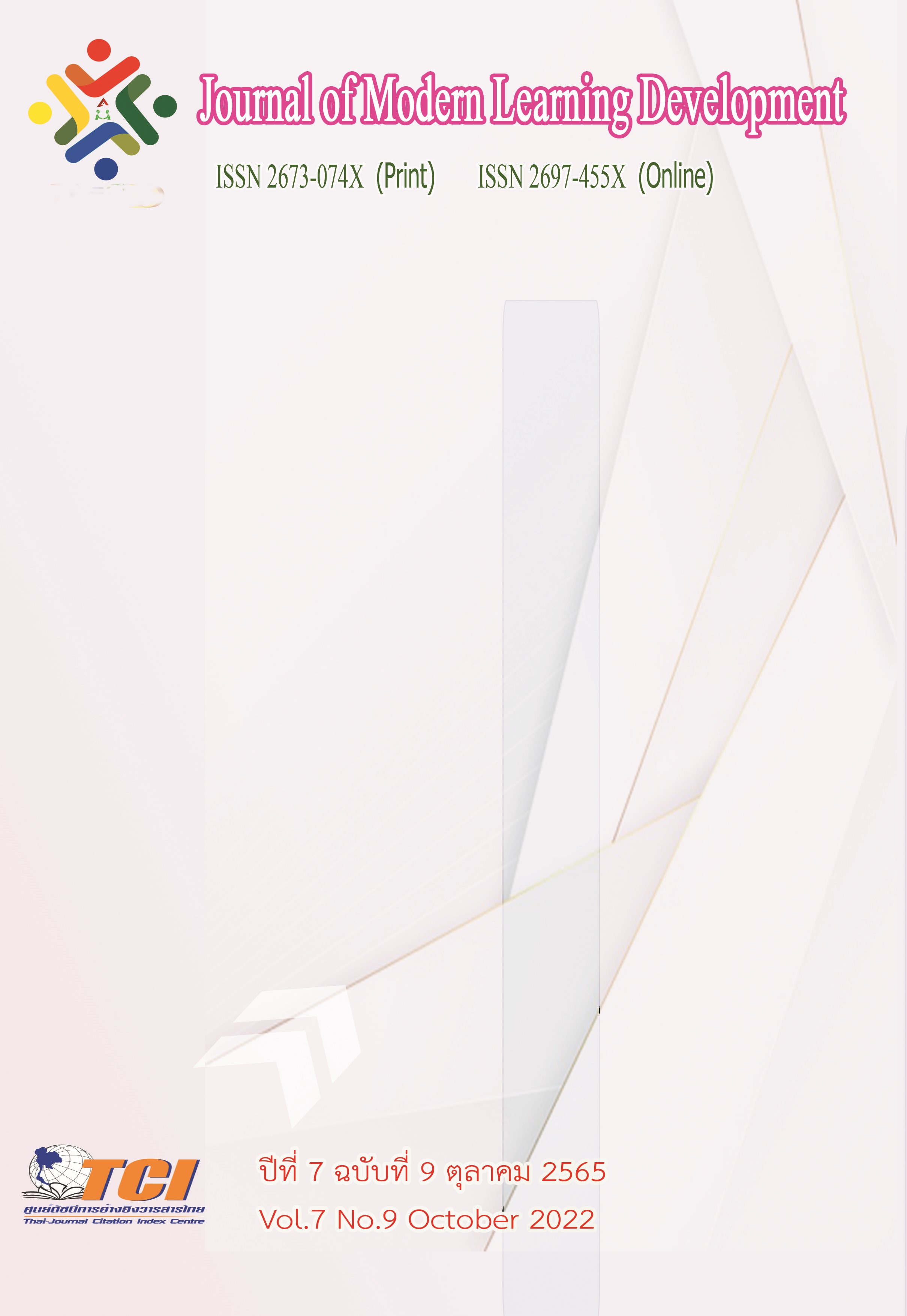The Development of Basic Western Music Theory Learning Activities for First Year Students at Shanxi Vocational College of Art, China
Main Article Content
Abstract
The research objectives are 1) to study the current situation and state of problems in Basic Western Music Theory teaching at Shanxi Vocational College of Art, 2) to propose Basic Western Music Theory Learning Activities for first-year students at Shanxi Vocational College of Art based on Carl Orff, Kodaly, and Dalcroze's approach, and 3) To study the effect of Basic Western Music Theory Learning Activities for first-year students at Shanxi Vocational College of Art. This research was a mixed method. The participants were 20 first-year students.
The results showed that 1) Six themes of challenges and trends in Basic Western Music Theory teaching are as follows: 1. Engagement of professional music theorists in designing and teaching the core 2. Focus on analysis and repertoire, somewhat less on part-writing 3. Integration of aural and written skills and increased time devoted to aural training 4. Increased use of technology in teaching 5. Remedial classes are growing, and 6. Two challenges: improvisation and music outside the Western canon Music theory are difficult to grasp because it uses visual methods to describe what we hear. That's a big problem for music theorists because our brains interpret music hundreds of times faster than it takes to explain it. The aspects with the lowest average score that should be developed are formative assessment and summative assessment in instruction (M=3.40, S.D.=0.60). The music theory course has appropriate content (M=3.50, S.D.=0.69), and Teaching methods are consistent with content and assessment (M=3.50, S.D.=0.69). In addition, problems encountered include the content of music theory is quite large. And the learners arranged the steps incorrectly and lack of teaching materials. 2) First-year students learning by basic western music theory learning activities for first-year students at Shanxi Vocational College of Art based on Carl Orff, Kodaly, and Dalcroze approaches had the student mean score of the posttest on basic western music theory achievement was higher than the pretest mean score at the significant level of 0.01. Students are satisfied with the field. Knowledge of the instructor's ability in teaching, and teachers consider the differences between individuals and develop students to their full potential at the highest level (M = 4.70, S.D.=0.47). Evaluation is appropriate for the content, and learners are the least average (M = 4.20, S.D.=0.41) but still very satisfied. Suggestions from students are a development of the game and various assessments.
Article Details
References
Butera, K. (2012). What is the Dalcroze Teaching Method. Online. Retrieved June 4, 2021. Form: https://www.sfcv.org/articles/ music-news/what-dalcroze-teaching-method
Clifft, J. (2021). Music Theory for Music Majors. Online. Retrieved June 4, 2021. Form: https://majoringinmusic.com/music-theory-for-music-majors-why/
Estrella, E. (2019). The Kodaly Method: A Primer. Online. Retrieved June 4, 2021. Form:https://www.liveabout.com/the-kodaly-method-a-primer-2456420
Gutierrez, J. (2019). An Enactive Approach to Learning Music Theory? Obstacles and Openings. Online. Retrieved June 4, 2021. Form: https://www.frontiersin.org/articles/ 10.3389/feduc.2019.00133/full
Long, A. (2013). Involve Me: Using the Orff Approach within the Elementary Classroom.
Online. Retrieved June 4, 2021. Form: https://thekeep.eiu.edu/honors/6/
Mete, M., and Dündar, M. (2020). The Effect of Kodaly method on the musical knowledge and skills of preservice teachers. Ilkogretim Online - Elementary Education Online. 19 (4), 2053-2073.
Niyomsuk, M. (2019). The Music Learning Management Based on Dalcroze’s Concept to Develop Music Practical Skills for Early Childhood. The Degree of Master of Education Program in Curriculum and Instruction. Bangkok: Faculty of Education Science, Dhurakij Pundit University.
Pum-in, P. (2014). The Creativity of the Basic Keyboard Method Using Kodaly. Institute of Culture and Arts Journal. 16 (1), 72.
Quan, H.Q. (2021). Innovative Music Education in China: Theory and Practice. International Journal of Engineering Applied Sciences and Technology. 6 (1), 63-76.
Türkmen, E.F., and Göncü, I.O. (2018). The Challenges Encountered in the Application of Kodaly Method in Turkey. Journal of Education and Training Studies. 6 (9), 39-45.
Yanderm, S. (2015). Conceptual Theory of Music Teaching. Fine Arts Journal Srinakharinwirot University. 19 (2), 21-31.


